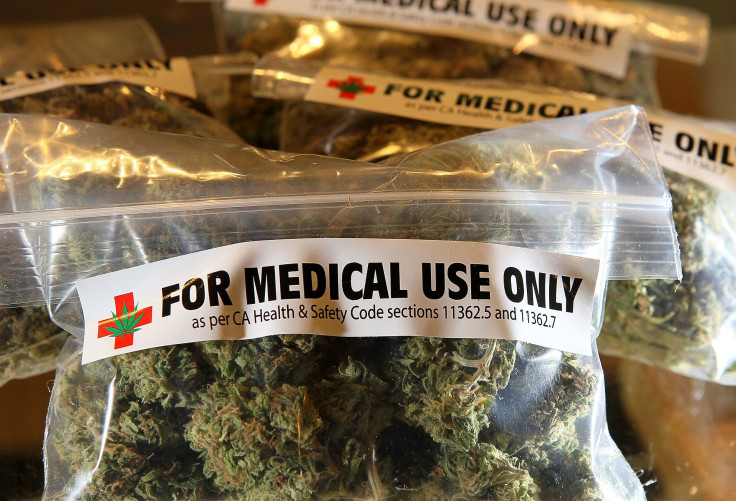How Marijuana Helps PTSD Patients? Cannabis Effectively Combat ‘Learned Fear,’ Experts Say

Recognizing the benefits of cannabis in successfully combating post-traumatic stress disorder, New York Gov. Andrew Cuomo signed legislation Saturday allowing patients to legally purchase medical marijuana for their condition.
The new piece of legislation allows police officers, firefighters and war veterans, who are suffering from various stages of PTSD, to seek help without consuming prescription drugs, New York Daily News reported.
“Many of our veterans are suffering from PTSD and the medical community has determined that marijuana can be a helpful treatment in some areas,” Cuomo said during the Veterans Day parade on Fifth Avenue, New York. “And part of our commitment to do everything we can do if there are veterans who are suffering and we can make a treatment available, we want to.”
PTSD, is an anxiety condition caused by disturbing episodes, often caused by from military combat or sexual assault. Symptoms characterizing PTSD come in three classes: re-experiencing, avoidance, and hyper arousal (flashbacks, social isolation and insomnia). Adrenaline and stress hormones are usually on an overdrive in patients suffering from PTSD, causing changes in their brain chemistry due to trauma.
So how does marijuana help in combating post-trauma stress? Two different cannabis compounds – cannabidiol (CBD) and tetrahydrocannabinol (THC) – are known to affect the nervous system and help PTSD patients bring their acquired fear under control.
“Post-traumatic stress is primarily about learned fear. When you have more learned fear, that’s going to induce a state of hypervigilance and that can also cause nightmares and terrors at night,” Dr. Mike Hart, a Canadian medical expert who practices both family medicine and cannabinoid medicine, told Herb. “We have evidence that CBD, for example, can reduce, by three different mechanisms of action, can reduce learned fear. So, anytime you’re helping to reduce learned fear, you’re helping to get to the root of that particular problem, so that’s why it can be so effective.”
Hart goes on to explain that marijuana also benefits PTSD patients who attend psychological therapy sessions. Taking cannabis just before attending therapy calms one’s mind and does not let it wander during a session.
“If you’re in such a disease state and all of those thoughts are not clear, than all of those sessions are basically going to be completely useless and ineffective, because if you’re not in a proper state, you’re not going to be able to accept the information, you’re not going to be able to do a true analysis on yourself, and you’re not going to be able to apply the new information that you’re learning,” he added.

According to Martin Lee, an affiliate of the Multidisciplinary Association for Psychedelic Studies (MAPS) and director of Project CBD, PTSD patients have an endocannabinoid deficiency in their bodies. This means that the body stops producing enough of the particular neurotransmitter to fill the receptor sites. Researches think that the cannabinoids found in marijuana replenishes the missing endocannabinoids, bringing relief to these patients.
“Scientists have determined that normal CB-1 receptor signaling deactivates traumatic memories and endows it with the gift of forgetting,” Lee, who has studied PTSD and cannabinoids in depth, said, Leafly reported.
“But skewed CB-1 signaling, due to endocannabinoid deficits (low serum levels of anandamide), results in impaired fear extinction, aversive memory consolidation, and chronic anxiety, the hallmarks of PTSD.”
However, the limited number of studies conducted on the effects of marijuana has failed to prove the effectiveness of medical marijuana for patients suffering from PTSD. According to the U.S. Department of Veterans Affairs, there have been researches that show that cannabis can be harmful for the particular medical condition.
Some of the medical problems that have been known to arise from the continual use of marijuana are abnormal brain development; chronic bronchitis; impairment in short-term memory and motor coordination; inability to perform complex psychomotor tasks such as driving; psychosis and failure of cognitive abilities.
Quality of life can also be compromised as marijuana use can lead to poor life satisfaction, reduced educational achievements, and increased sexual risk-taking behavior. Chronic marijuana users are also prone to addiction, and withdrawal syndrome.
© Copyright IBTimes 2025. All rights reserved.






















